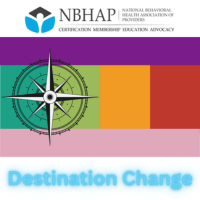Legislative Alert: Connecticut Sober Living House Registration
June 7, 2018
The Connecticut State Legislature has passed strong>HB 5685, which creates certification and oversight of sober living homes in the state.
Pursuant to the legislation, the Connecticut Department of Mental Health and Addiction Services (the "Department") will recognize certified sober living homes, which are defined as alcohol-free and drug-free residences where (1) unrelated adults who are recovering from a substance use disorder choose to live together in a supportive environment during their recovery, (2) no formal substance use disorder treatment services are provided, and (3) the home has been certified as a recovery residence by an affiliate of the National Alliance for Recovery Residences, or a successor organization, or another organization recognized by the Department.
According to the new law, operators of certified sober living homes must maintain at least two doses of opioid antagonists on the premises and provide training to all of its residents in the administration of an opioid antagonist when the home is occupied by at least one resident who has been diagnosed with opioid use disorder. The Department will post on its website a list of the sober living homes that have reported their certified status pursuant to the new law and will create a disclosure form for distribution to prospective sober living home residents. Certification, however, is not legally required for sober living homes to operate in the state.
Pursuant to the new law, which will be effective October 1, 2018, if passed, no operator of a sober living home may (1) advertise or represent that a sober living home is a facility that is certified or licensed to provide substance use disorder treatment services, or (2) publish any claims of particular outcomes for individuals residing in such homes. In addition, sober living home websites must include a clear and conspicuous statement in bold typeface that the sober living home (1) is not licensed or certified to provide substance use disorder treatment services, and (2) is a type of housing in which individuals recovering from a substance use disorder voluntarily choose to live together in a supportive environment during their recovery. Failure to abide by these rules will constitute an unfair trade practice, which can subject operators to civil penalties as well as private rights of action for damages.
BHAP will continue to monitor the progress of Connecticut HB 5149, which at this time still needs to be signed by the governor, and will update members on any important legislative updates.

A national membership association that provides education and advocacy for those in the behavioral health and addiction treatment industries.
We are the leading and unifying voice of addiction-focused treatment programs.



